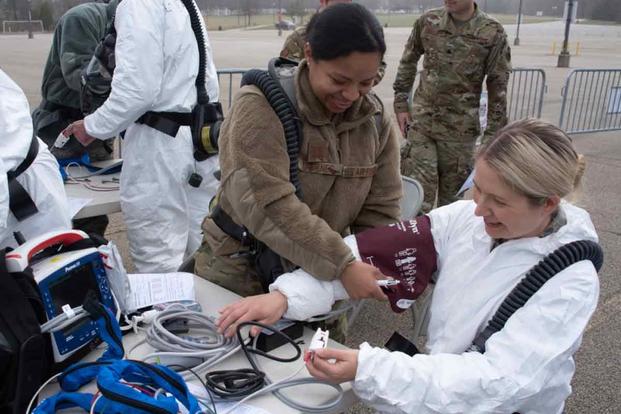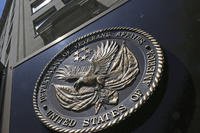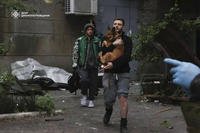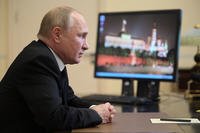New guidance from the Pentagon lays out a series of special pays and allowances for military members who are dealing with coronavirus response, quarantined after contracting the virus or separated from their families due to permanent change-of-station changes.
The guidance, issued Thursday evening, includes a new cash allowance for troops ordered to quarantine after exposure to the virus.
The new pay, known as Hardship Duty Pay-Restriction of Movement (HDP-ROM), helps troops who are ordered to self-isolate, but are unable to do so at home or in government-provided quarters, to cover the cost of lodging, according to the guidance. Service members can receive $100 a day for up to 15 days each month if they meet the requirements, the guidance states.
"HDP-ROM is a newly-authorized pay that compensates service members for the hardship associated with being ordered to self-monitor in isolation," a fact sheet issued with the guidance states. "HDP-ROM may only be paid in the case where your commander (in conjunction with military or civilian health care providers) determines that you are required to self-monitor and orders you to do so away from your existing residence at a location not provided by or funded by the government."
Related: Military Families Overseas Say They Can’t Order from Amazon Anymore
For example, if a single service member who otherwise lives in the barracks is ordered to self-isolate, but no other on-base housing is available, he or she could get a hotel room instead, and use the allowance to cover the cost, the policy says.
Service members will not be required to turn in receipts to receive the allowance, it adds, and commanders will be required to authorize it. The payment is given instead of per diem, according to the fact sheet.
The guidance also clarifies housing and separation allowances for families who are impacted by self-isolation rules or whose military move was halted by the stop-movement order issued early this month.
Service members who receive Basic Allowance for Housing (BAH) but who are ordered into self-isolation in government-provided quarters will continue to receive BAH or overseas housing allowances (OHA) at their normal rates, it states.
Additionally, a Family Separation Housing Allowance (FSH) may be available for families whose military move was split by the stop-movement order, the guidance states. That payment allows the family to receive two BAH allotments -- one at the "with dependents" rate and one at the "without dependents rate" -- to cover the cost of multiple housing locations. Service members may also qualify for a $250 per-month family separation allowance if blocked from returning to the same duty station as their family due to self-isolation orders or the stop-movement, it states.
The guidance also instructs commanders to "apply leave and liberty policies liberally," allowing non-chargeable convalescent leave for virus-related exposure, self-isolation or even caring for a sick family member, the guidance states. It also directs them to allow telework whenever possible.
"Commanders have broad authority to exercise sound judgment in all cases, and this guidance describes available authority and flexibility that can be applied to promote, rather than to restrict, possible solutions," the policy states.
A separate policy issued March 18 allows extended per diem payments to service members or families in the process of moving who are without housing due to lease terminations or home sales.
-- Amy Bushatz can be reached at amy.bushatz@military.com.
Read more: The Pentagon Says Troops Are Social Distancing. Why Do These Photos Say Otherwise?












